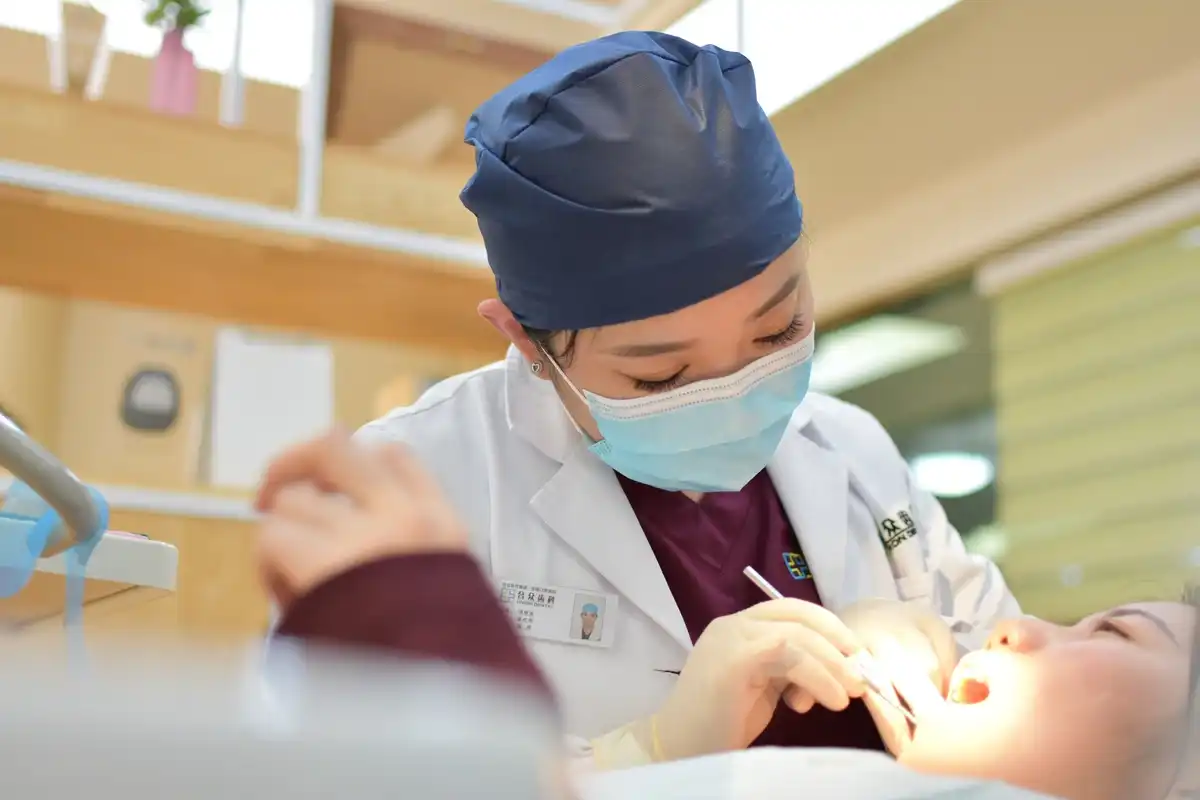7 Reasons The Roof of Your Mouth is Sore & Painful


In dentistry, we call it the “palate”. To everyone else, it’s just the roof of your mouth. You don’t think about it very often, except maybe when you burn it on a piece of hot pizza. It doesn’t get a lot of attention unless something is wrong (except of course when we’re talking about having a palate for a specific cuisine!)
If you were to tell your dentist that “the roof of my mouth hurts” there aren’t that many diagnoses to screen you for. That’s because your palate is a hard bone that’s covered by a relatively thin layer of mucosa.

Common Symptoms
If for some reason the roof of your mouth hurts, you’ll probably have additional symptoms like:
Dry Mouth
Roof of the mouth swollen? Xerostomia (dry mouth) doesn’t usually cause the roof of your mouth to be swollen, but it can make your hard palate sore if your dry mouth is severe.
Symptoms
If you have dry mouth, you’ll probably notice burning sensations, difficulty eating/swallowing, or easily irritated areas because of a lack of saliva. In turn, this can cause the roof of your mouth to be sore or scratched while you’re eating.
Mouth Sores Or Canker Sores
Getting canker sores anywhere in your mouth can cause pain. If the roof of your mouth hurts, it could be that you have a flare-up of blisters across your hard palate. The roof of your mouth being swollen might be related to a virus, stress, or an immune issue.
Symptoms
Normal oral blisters, ulcers, or other mouth sores tend to be small but extremely painful (because of how sensitive your mouth is.) Since your tongue pushes against your palate each time you swallow, it can make eating quite painful. With any mouth sore, you’re likely to say “the roof of my mouth hurts” no matter how soft your diet is!
Muscle Cramps
Symptoms
Common symptoms of dehydration include increased thirst, decreased urination, dark urine, dizziness, and an increased heart rate.
7 Causes For A Sore Roof Of Mouth
1) Oral Trauma / Burned Your Mouth
The most common reason why you would say the roof of my mouth hurts is that something physically hurt/traumatized/burned it.
Symptoms
Usually, there is moderate to severe tenderness or pain on a specific point in the roof of your mouth. Eating hard foods like tortilla chips or burning your mouth on hot pizza are common causes of trauma. Oral burns to your palate can also occur if you’re smoking, due to the heat and inhaled fumes (regardless of what it is that you’re smoking). Smoking-related burns tend to cause a white area with tiny pinprick dots across it.
Treatment
Try to prevent food or your tongue from coming into contact with the traumatized area. Allow several days to heal. If you smoke or use recreational inhalants, now is a great time to kick the habit.
2) Mouth Sores Or Canker Sores
Ulcers, canker sores, or similar mouth sores can cause pain or swelling in your palate. They can be induced by stress, environmental factors, or even viral in nature (such as herpes simplex virus strains, which are known for causing “cold sores” or “fever blisters”.)
Symptoms
A mouth sore such as aphthous ulcers can cause small, round, raw areas that are just a few millimeters wide. Usually they appear one at a time, but some types of mouth sores can cause a flare-up of multiple blisters.
Treatment
Depending on what type of mouth sores you have, your dentist may recommend “miracle mouthwash”, a topical medication, or simply allowing time to heal.
3) Torus Palatinus
“Tori” or “torus” are bony growths that appear on top of your natural oral anatomy. In the case of palatal tori, there’s a bony extension (still covered by gums) in the middle of the roof of your mouth.
Symptoms
Torus palatinus is asymptomatic but it’s common for people to irritate/traumatize the area because of how it sticks out more that other areas of their mouth. It can make it look like the roof of the mouth is swollen. Some types of palatal tori are smooth and round or oval-shaped in the middle of their palate. In other cases, they’re multi-bulbous and appear to be a cluster of several different growths. Unlike typical swelling, tori are hard to the touch.
Treatment
Usually tori is left in place. But if you say, “the roof of my mouth hurts” and it’s because of the growth, or your torus interferes with a denture, your dentist may suggest surgical removal.
4) Dehydration
Symptoms
Dehydration, alcohol intake, and an electrolyte imbalance can cause a lack of fluid in your body, resulting in swelling in the roof or your mouth.
Treatment
If your dehydration is severe, seek emergency medical care and IV therapy.
5) Mucoceles
A mucocele is a fluid-filled cyst that’s filled with saliva and usually directly over or next to a saliva gland. If the salivary gland becomes blocked, it can result in a saliva-filled “blister” in that location.
Symptoms
Normally, mucoceles appear when your mouth is watering – such as around mealtimes – or gradually come and go throughout the day. It looks like a smooth, pink blister.
Treatment
6) Electrolyte Imbalance
Symptoms
Issues like muscle cramps or dehydration commonly accompany spasms from an electrolyte imbalance. Sometimes these symptoms can be felt in the roof of the mouth.
Treatment
Depending on the severity of your situation, your doctor may recommend hydrating with a sports drink or going to the emergency room for an IV drip to get fluids back into your body.
7) Mouth Cancer And Other Serious Conditions
Although it’s scary to think about, if the roof of mouth swollen/swelling seems to develop for no apparent reason, it’s crucial to get screened by your dentist for oral cancer. When in doubt, schedule an appointment with your dentist. It is always safer to consult with your dentist who will likely follow a "2-week re-evaluation" rule to see if the lesion goes away or changes.
Symptoms
Outside of atypical growths and sores, symptoms of oral cancer tend to go unnoticed. There’s usually no pain or discomfort. Something obvious like swelling may indicate advanced disease.
Treatment
Sore Roof of Mouth Pain Relief At Home
Since most non-tooth related oral pain is temporary, especially if it’s a sore in the roof of your mouth, at-home pain relief is usually the best solution. As long as you’re hydrated and don’t require medical care (such as an IV) drip, topical treatments or an over-the-counter pain reliever can both be effective.
If there’s swelling, a burn, or other irritation from trauma, take an anti-inflammatory such as Motrin or ibuprofen if the pain is really bothering you. Otherwise, just do your best to try to avoid irritating the area with your tongue or while you eat.
When To See A Doctor
If you simply burned the roof of your mouth on a slice of pizza or with your morning cup of joe, your palate should heal with time.
- If you didn’t burn the roof of your mouth and the pain does not subside, you should consider seeking medical attention.
- If the swelling and pain are getting worse with time, you should consult with your doctor.
- If the swelling is unexplained, you should consult with your doctor.
Overcoming A Sore & Swollen Palate
Since palate (roof of your mouth) pain and swelling isn’t very common, it’s usually easier to narrow down the cause. In most cases, pain in the roof of the mouth comes from trauma, such as eating something hard or hot. Or it’s the result of dehydration, blocked saliva ducts, or a natural bony formation.
Treatment can range from giving yourself a few days to heal to needing to go to the hospital for an IV drip to rehydrate your body. If you’re in pain or the swelling is interfering with normal eating and drinking, talk to your dentist about a more long-term solution.

Make your inbox smile!
Subscribe






